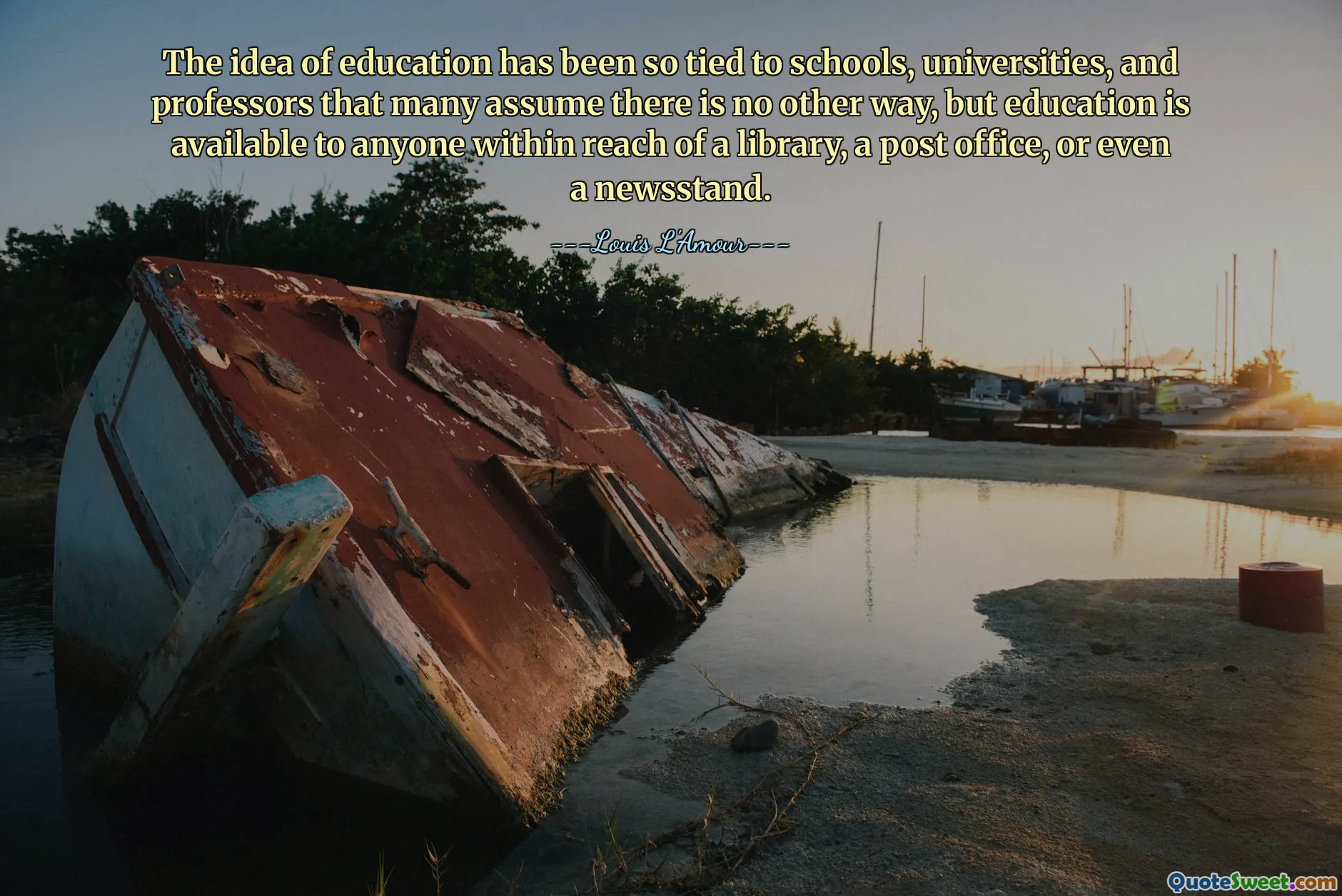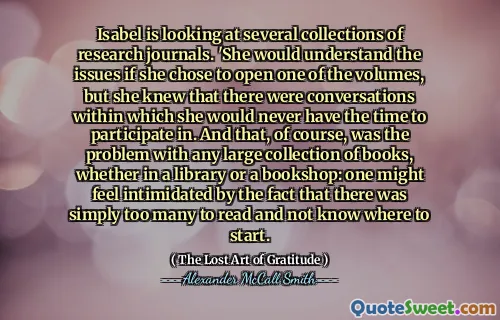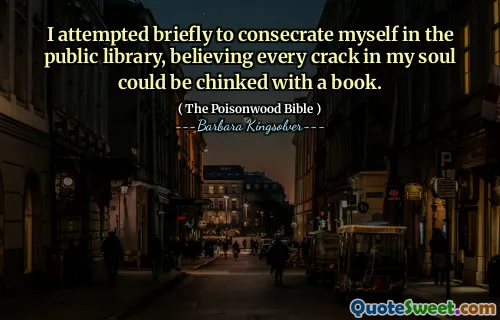
The idea of education has been so tied to schools, universities, and professors that many assume there is no other way, but education is available to anyone within reach of a library, a post office, or even a newsstand.
Education is often perceived as a formal pursuit confined within the walls of institutions like schools and universities, with professors as the primary facilitators of knowledge. This traditional view, while valid, overlooks the vast opportunities for learning that exist outside these structures. The quote highlights an empowering perspective: education is accessible to everyone, regardless of their circumstances, by utilizing everyday resources such as libraries, post offices, and newsstands. These accessible sources democratize knowledge, bridging gaps created by economic, geographic, or social barriers. Libraries offer free access to a wealth of books, digital resources, and expert assistance, serving as hubs of continuous learning. Post offices and newsstands provide access to newspapers, magazines, and other publications that can expand one’s understanding of current events, cultures, and ideas. This broader view aligns with the concept of informal and lifelong learning, emphasizing the importance of self-directed education outside formal settings. It encourages individuals to seek knowledge in their environment and to view learning as a perennial pursuit accessible to all. Recognizing these alternative avenues for education empowers many, particularly those who might feel marginalized or limited by traditional educational pathways. It reinforces the idea that the pursuit of knowledge can happen everywhere and at any time, fostering a culture of curiosity, independence, and resilience. Ultimately, this perspective widens our understanding of what education truly entails, emphasizing that it is an ongoing process that transcends formal institutions, rooted in everyday life and accessible to everyone willing to learn.








